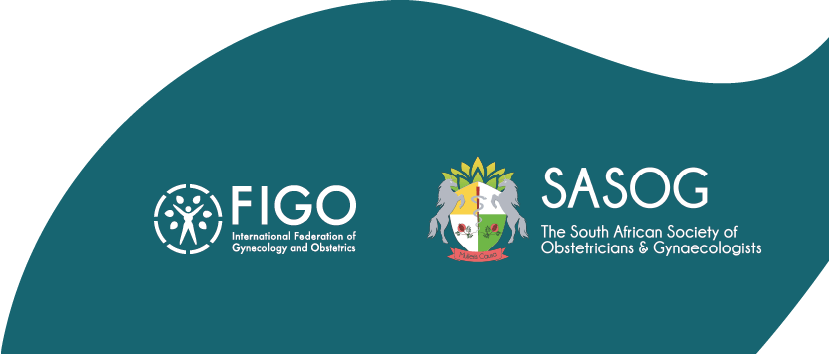Submissions are now closed
The call for the submission of late-breaking abstracts is now closed. Notifications will be sent to submitters in June 2025.
We are not able to accept modifications to submissions during the review process, but if you would like to withdraw your submission or change the presenting author, please contact us.
A reminder of the submission guidelines can be found below:
This is an exciting opportunity to showcase your most recent research findings at one of the most prestigious events in the field of obstetrics and gynaecology. The submission window will remain open for three weeks, closing on 16 April 2025 at 23:59 UTC.
Key dates:
- Submissions open: Monday 24 March 2025
- Submissions close: Wednesday 16 April 2025
- Notifications to submitters: Monday 2 June 2025
Reasons to submit a proposal:
- Present your research to the 8,000+ attendees of FIGO Cape Town 2025 and have your say in advancing women’s health.
- Have your paper published in the International Journal of Gynecology and Obstetrics (IJGO) supplement to FIGO Cape Town 2025.
- Best scoring abstracts will be invited to submit further research for other IJGO publications.
- Top 20 abstract submissions from low-/middle-income countries will receive complimentary registration for the presenting author.
- Presenting authors of successful abstracts from LMICs, nurses, midwives or trainees may qualify for a bursary to support their participation at Congress.
Applying for a bursary:
We are committed to ensuring that financial barriers do not prevent researchers from attending the Congress. Our new bursary programme provides funding for those who may otherwise be unable to participate. To be eligible for a bursary applicants must have an abstract accepted to the scientific programme, you can also apply with a pending late-breaking abstract application. Priority will be given to low or lower-middle-income countries, as well as nurses, midwives, students, and trainees.
Click here to find out more about the bursary criteria and how to apply.
Guidelines:
For submission guidelines and selection criteria, please refer to the full guideline documents below.
Bursary applications still open!
The deadline for bursary applications is 30 April 2025.
We are committed to ensuring that financial barriers do not prevent deserving researchers from attending the Congress. Our new bursary programme provides funding for those who may otherwise be unable to participate. To be eligible for a bursary applicants must have an abstract accepted to the scientific programme, you can also apply with a pending late-breaking abstract application. Priority will be given to low or lower-middle-income countries, as well as nurses, midwives, students, and trainees.
Click here to find out more about the bursary criteria and how to apply.
To browse the scientific programme so far, click the button below.
Important dates
Submissions open
Wednesday 18 September 2024
Submissions close
Friday 1 November 2024*
Review and selection period
November – December 2024
Notifications to submitters
January 2025
*N.B. Submissions received after this date will not be considered.
Submission types
- Accepted abstracts will be presented at the Congress as either a 7-minute oral presentation followed by 2 minutes of audience Q&A or a 1-page ePoster in 16:9 PDF format.
- Accepted abstracts, limited to a maximum of 250 words, of full scientific papers will be published as a supplement to the XXV FIGO World Congress of Gynecology and Obstetrics in the International Journal of Gynecology and Obstetrics (IJGO).
- The Scientific Programme Committee will select a few outstanding abstracts, whose authors will be invited to submit a full paper to the IJGO.
- The online abstract submission form is divided into the following sections:
- Title: The title should clearly define the content of the paper. There should be no full stop at the end of the title. For clinical trials, the title should include ‘randomised controlled trial’ or ‘clinical trial’.
- Objective: Concise statement on why the study was conducted.
- Methods: Location, number and type of human subjects, non-human species or material being studied. Design of the study and type of intervention. Principal assays or test(s) performed and the types of statistical analyses if appropriate.
- Results: Main findings and results should be reported. Results should be supported by statistical analysis where appropriate.
- Conclusion: Main conclusion of the study and significance of the results. How the results may affect patient management or understanding of the condition.
- Proofread your abstract carefully before submitting to ensure accuracy with no spelling, grammatical or scientific errors. Corrections will not be accepted after the submission close date. Accepted abstracts will be published in the IJGO supplement as submitted. Neither FIGO nor the IJGO accept responsibility for errors in the abstract publication.
- Use standard abbreviations where appropriate. Include any other abbreviations in brackets after the full word the first time it appears. Abbreviations should follow MEDLINE standards.
- Abstracts stating merely that the results will be presented or discussed at the congress will be rejected.
- The use of tables, images or footnotes in the abstract is not allowed.
- Please do not include keywords in the body of your abstract. Any keywords included in accepted abstracts will be removed for the IJGO publication.
- Authors: All author names should be included in the order they will appear in publication. The name of the presenting author will be identified with an asterisk. Ensure that the correct spelling is confirmed for all contributing authors: no amendment will be permitted after the submission deadline. FIGO strongly encourages that primary research studies carried out in low-/middle-income countries must have at least one local co-author.
- Affiliations: Please only list one primary affiliation. Department names from the same affiliation will be merged for a single entry. Affiliations will include the department, institution, city and country only.
- Consent to Publish: If the abstract contains details relating to individual participants (for example a case report), written informed consent for the publication of these details must be obtained from the participants and a statement to this effect should appear at the end of the abstract. If the patient is deceased, consent for publication should be obtained from the next of kin, and if the patient is under 16, consent should be obtained from the parent or guardian.
- Conflict of interest: All submitters must disclose, on behalf of all authors and co-authors in their abstract submission, any conflicts of interest during the online submission or have their submission rejected at the discretion of the scientific programme committee. We request all presenters to cooperate by declaring any potential conflict of interest on their slides or posters. All disclosures will be published with the abstract.
- Clinical trials: If your abstract reports on a clinical trial, you must provide the following:
- Prospective registration in a public trials registry (i.e. registry must clearly show that the trial was registered before or at the time of enrolment of the first patient).
- URL of registration (this must link directly to the individual record for the paper on the trial registry, not to the registry homepage)
- Full study dates (day, month, and year) stated in the “Methods” section, which must align with those stated in the registry.
- Inclusion/exclusion criteria, which must align with those stated in the registry.
- Number of study participants, which must align with those stated in the registry.
- Statement of approval by an institutional Ethics Board.
- Name of approving Ethics Committee.
- The Scientific Programme Committee or IJGO editors may ask authors to share the anonymised raw data of their study, either for review during the peer review process, or in the event of any post-publication queries regarding the integrity of the study.
- All abstracts will be subject to a single-blind review process by the Scientific Programme Committee and their advisors. Mean scores will be calculated for each submission and based on this they will be allocated to oral or ePoster presentations, or they may be rejected. Each abstract will be scored based on the following criteria: scientific merit, suitable sample size, proper statistical analysis, adherence to instructions and originality of the work.
- A maximum of one abstract presentation and publication will be permitted to each presenting author. Only the presenting author’s name will appear in the final Congress programme. All co-author names will be published in the IJGO supplement.
- The presenting author must complete their registration payment by 30 June 2025 in order to have their accepted abstract included in the final Congress programme and published in the IJGO supplement. Failure to complete registration payment in time may result in exclusion from the programme and IJGO supplement. Exceptions will only be made in extenuating circumstances at the discretion of FIGO, for example if sanctions in your country prevent you from completing your registration payment in advance of the Congress. If you have an extenuating circumstance, you must notify figo.abs@mci-agency.com before 30 June 2025.
- The presenting authors of the top 20 abstracts accepted from low-/middle-income countries as determined by the Scientific Programme Committee will be awarded with complimentary general Congress registration.
- The film festival will showcase high-quality videos up to a maximum of 10 minutes each.
- Films can address a range of topics, from surgical procedures to advocacy stories, and must include audio narration. Films with no audio or music alone will not be considered, unless subtitles are provided.
- Each film must have one nominated presenter who will introduce the film before it is played and participate in audience Q&A after it has played.
- Film festival submission is split into 2 stages:
- Stage 1: Submit an abstract of your film to be reviewed by the Scientific Programme Committee. The online form is divided into the following sections:
- Objective: Describe the objective of the film and if necessary, include history, the diagnostic significance of symptoms, etiology or prevalence of disease, or the need for new skill development.
- Description: A detailed explanation of techniques shown or interviews which take place. This can include case histories, variations in management, prognosis, treatment or studies. Key operative techniques should be identified and demonstrated as clearly as possible.
- Conclusion: Summarise the main points and thoughts/observations on future developments.
- Stage 2: If the Scientific Programme Committee wishes to proceed with your film submission, you will be sent further guidelines and asked to upload the film to our online review site for a final review before it is accepted for presentation at the Congress.
- Stage 1: Submit an abstract of your film to be reviewed by the Scientific Programme Committee. The online form is divided into the following sections:
- Videos presented at the Congress as part of the film festival may be added to FIGO’s Online Knowledge Hub after the event has taken place.
*N.B. Videos exceeding 10-minutes will not be considered.
- Breakout sessions are 1 hour long, including time for audience Q&A, and come in a variety of formats, such as lectures, seminars, panel discussions or debates.
- Each breakout should have a chairperson who will introduce the session and the speakers, moderate live discussion between the speakers and the audience, and give concluding remarks to close the session.
- The scientific programme committee encourage submitters to limit the number of speakers in a breakout session to a maximum of 4, including any Chairperson or moderator, to ensure each speaker has ample time to present.
- Hands-on simulation labs are 2 hours long, excluding a mid-session break.
- Simulation labs are practical teaching demonstrations where attendees get the opportunity to get physically involved in the session. They typically require equipment such as models, medical tools or other that allow the attendees to get a “hands-on” learning experience.
- Attendance to each simulation lab requires paid pre-registration in addition to the general Congress registration.
- The minimum attendance for a simulation lab is 15 and the maximum is 50. We will require the minimum number of attendees to be registered for the simulation lab 2 months prior to Congress in order for it to take place.
- Pre-Congress workshops can be 3 hours (half-day) or 6 hours (full-day) long, excluding mid-session breaks, and take place on Saturday 4 October 2025.
- Workshops are focused, interactive seminars that offer attendees a deep dive into a specific area of interest. They should offer many opportunities for audience participation including quizzes, small breakout groups with reporting, and similar exercise to encourage group interaction.
- Attendance to each workshop requires paid pre-registration in addition to the general Congress registration.
- The minimum attendance for a workshop is 30 and the maximum is 100. We will require the minimum number of attendees to be registered for the workshop 2 months prior to Congress in order for it to take place.
Terms and conditions
- Completed submissions can be edited through the online submissions portal until the submission close date. Corrections made or requested after this date will not be considered.
- Only submissions saved in “Final submission” status in the online submissions portal will be considered for review by the Scientific Programme Committee.
- Once you have saved your submission in “Final submission” status, you will receive a confirmation email that your submission has been received with a copy of your submission, both of which you should save for your personal record.
- All submissions will be subjected to a single blind review process by the scientific programme committee and their advisors.
- Preference will be given to submissions offering an interactive format and diverse perspectives with speakers from different geographical regions.
- The Scientific Programme Committee welcomes submissions for all submission types in English, French or Spanish. Submissions in other languages will not be considered.
- Simultaneous interpretation cannot be guaranteed. If you have multiple talks or speakers in your session, you must ensure they can all speak the same language.
- There is no limit on how many submissions one person or organisation can submit; however, the Scientific Programme Committee may limit submitting organisations to a maximum of one activity in the programme to maximise inclusivity and representation of different perspectives.
- The Scientific Programme Committee may reassign the type and/or category of a submission at its discretion.
- Submissions which have been presented at other international meetings or have previously been published, or be under consideration for publication elsewhere, will not be considered.
- Submissions received via email or post will not be considered.
- Submissions received after the submissions close date will not be considered.
- Only the submitters will be notified by email in January 2025 if their submission has been accepted or rejected. The scheduled time and date determined by the Scientific Programme Committee of accepted submissions, excluding accepted abstract submissions which will be scheduled in July 2025, will be included in the email. It is the responsibility of the submitter to notify the authors and/or speakers in their submission of the Scientific Programme Committee’s decision. Further instructions, for example for registration, presentation submission and arrival at the live event, will be communicated directly to individual speakers in due course.
Any request for withdrawal should be sent to figo.abs@mci-agency.com before 30 June 2025. The submitter must clearly explain the reason for withdrawal. Failure to present an accepted submission may lead to systematic rejection of your submission for future FIGO events.
- FIGO Cape Town 2025 is an in-person only event. All speakers must be available to present in-person at the Cape Town International Convention Centre between 5 – 9 October 2025, and 4 October 2025 if they are part of a pre-Congress workshop.
- The scientific programme typically features over 800 speakers and nearly 2,000 abstract presentations. As such, we cannot accommodate specific scheduling requests.
- All speakers must complete their registration and payment by 30 June 2025 in order to confirm their participation and ensure their access to the live event.
- FIGO depends on all confirmed speakers to be on site and in the correct room for their presentation prior to the scheduled session start time. Late or absent speakers will be recorded and may result in exclusion from future speaking engagements at FIGO events. Exceptions will only be accepted in the case of genuine last-minute emergencies.
- The host(s) and/or faculty of an accepted submission will be responsible for their own equipment, travel, accommodation and registration costs.
- All speakers will be required to complete a Conflict of Interest (COI) form. COI should be declared at the point of submission.
- All submitters must disclose, on behalf of all other authors or speakers in their submission, any conflicts of interest during the online submission or have their submission rejected at the discretion of the scientific programme committee. We request all presenters to cooperate by declaring any potential conflict of interest on their slides, videos or posters.
- Some sessions will be audio and/or video recorded during the live event, which may also include the recording of the presenter’s slides or any pre-recorded video they may present. There will also be photography at the live event. All speakers will be required to agree to FIGO’s use of any recordings or photographs taken from the live event by signing a speaker consent form.
If you have a question regarding your submission or using the submission website, please contact us.


